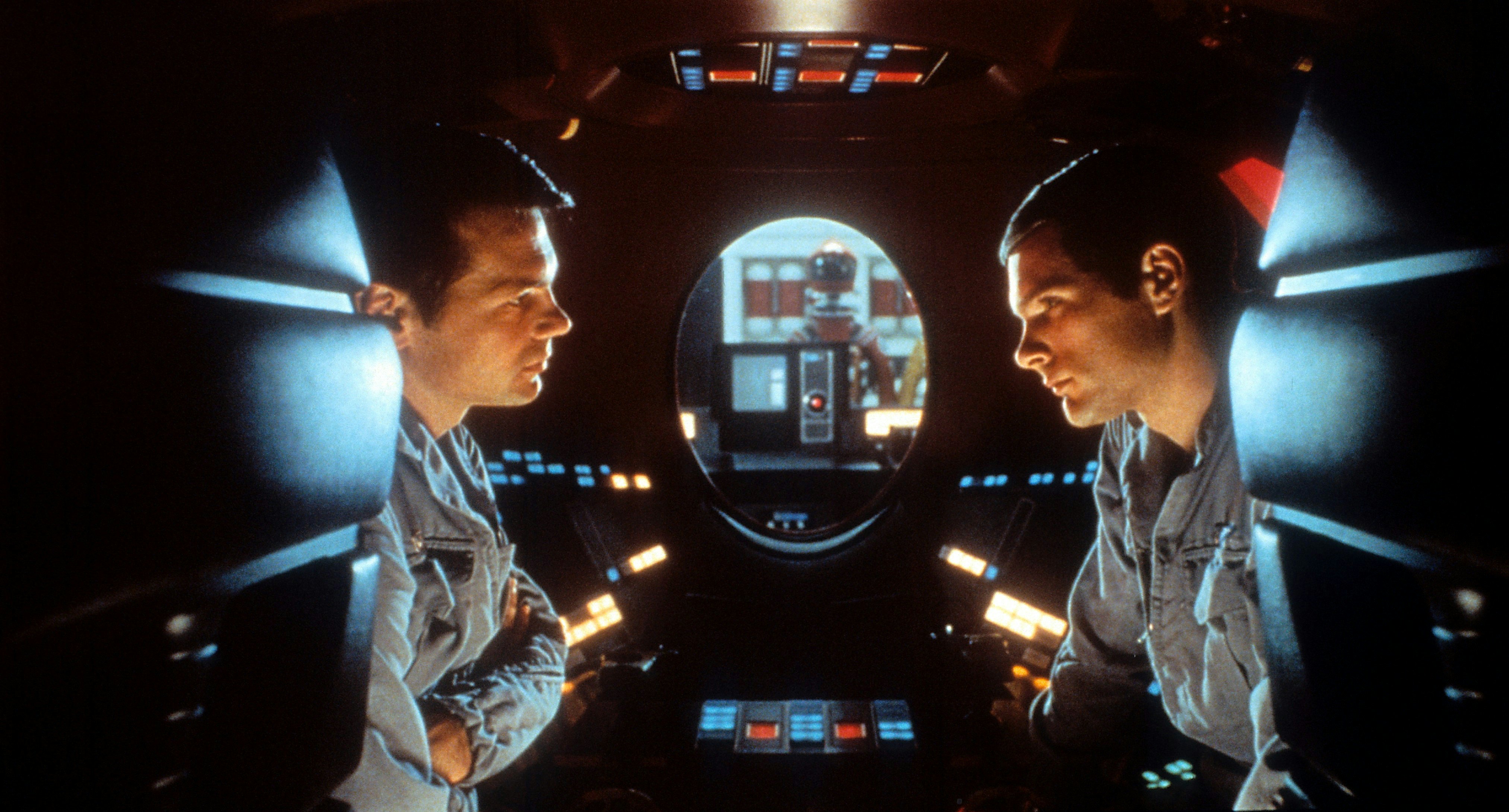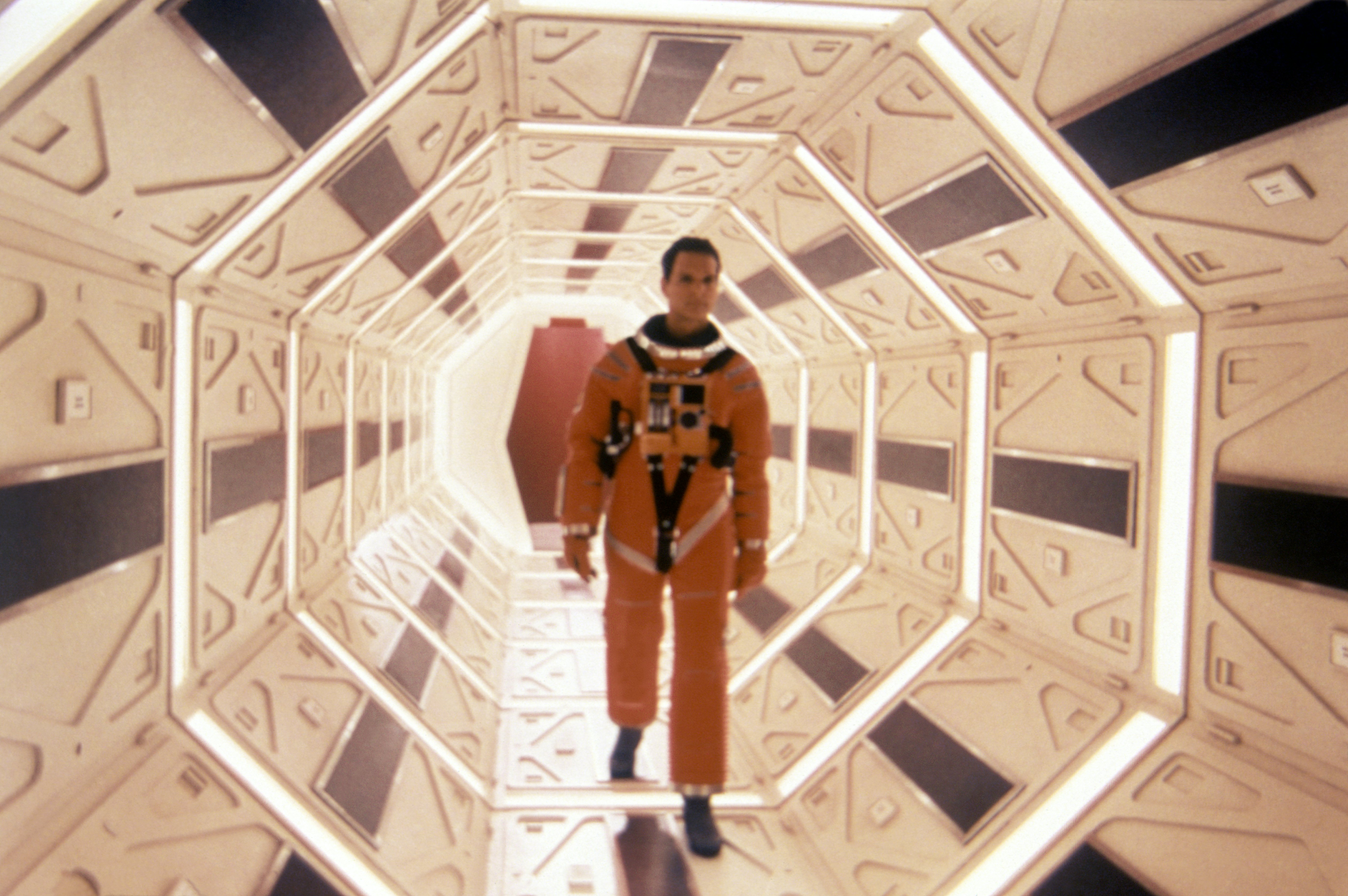
In the late ‘60s, one movie somewhat amazingly united the niche sci-fi audience, hardcore film snobs, and a chunk of mainstream viewers like no movie before (or since). This Stanley Kubrick masterpiece wasn’t an overnight success, but well-received theatrical revivals in 1971 and 1974 changed its perception. Well before the Lucas-Spielberg sci-fi movie renaissance of the 1980s, the standard was, in many ways, 2001. At one point in the ‘70s, John Lennon claimed he watched this movie “every week.”
But does it deserve its crown as the greatest sci-fi movie ever? Is its story of an evil AI still relevant today? And what is it that makes 2001: A Space Odyssey so unique? The short answers are kind of, very much so, and because there was never a collaboration like this in the history of sci-fi before or since. Read on for the long answer.
One of the reasons we can’t really call 2001 the best science fiction movie ever is simply because, like a lot of older science fiction, the essentially all-male cast is somewhat distracting. This isn’t to say the movie doesn’t work, but would it have killed Kubrick to have imagined a woman astronaut? While there’s a level of artistic precision that’s utterly absent in other sci-fi movies of its time, 2001 does suffer from being a sausage fest. Gary Lockwood and Keir Dullea are crackling as astronauts Frank Poole and David Bowman, but when you consider that Lockwood brilliantly co-starred with Sally Kellerman in the second Star Trek pilot, “Where No Man Has Gone Before,” just three years prior, it makes you wonder what a slightly more feminist 2001 could have felt like.
But to watch 2001 now is arguably to think of it as a unique cultural artifact, rather than as a product we can fairly judge by today’s standards. And yet, if we think of the film as a cautionary tale about AI, with some bearing on how we think of the technology today, 2001 holds up shockingly well.
Crucially, the saga of onboard computer HAL 9000 (Douglas Rain) isn’t really what the movie is about. The basic plot of 2001 is that humanity discovers monoliths placed by an enigmatic alien intelligence that’s been around for millions of years. Frank and Dave take the Discovery to Jupiter, in what we later learn is a secret mission to check out a mysterious alien radio signal. Along the way, HAL goes berserk and tries to murder them, but HAL’s malfunction isn’t explicitly connected to the aliens. In fact, within the movie, HAL’s malfunction isn’t all that different from ChatGPT making up facts. The reason the mission nearly fails is because Discovery relies on its AI too much. Human tech support is nonexistent.

While author Arthur C. Clarke later provided an explanation for HAL’s behavior in the sequel novel and film 2010: The Year We Make Contact, within 2001 it’s basically just a programming glitch. Today, that feels realistic. HAL isn’t a killer robot. He’s just an onboard AI that takes care of basic tasks and then stops working correctly. This results in one astronaut getting tossed out into space and the other one almost suffering the same fate.
What makes 2001 so interesting is that all the cautionary AI stuff is simply an attempt to add realism, not the point of the movie itself. What’s singular about 2001 is that it was a complete collaboration between famed novelist Arthur C. Clarke and cinematic auteur Stanley Kubrick. There was no pre-existing novel; Clarke, with Kubrick’s insight, wrote a treatment, a screenplay, and then a novel. While 2001 is vaguely inspired by Clarke’s short story “The Sentinel,” the author said in 1983, “I am continually annoyed by careless references to ‘The Sentinel’ as the story on which 2001 was based; it bears about as much relation to the movie as an acorn to the resultant full-grown oak.”
He’s right. The short story takes place entirely on the moon and contains little of the film’s ruminative brilliance. So the fact that one of the greatest sci-fi novelists of all time collaborated with one of the greatest directors of all time, and produced a classic film that almost everyone agrees is great, is nothing short of miraculous. This just doesn’t happen. The norm is what happened when Frank Herbert worked closely with David Lynch on Dune in 1984: an infamous flop.
So 2001 is a unique accomplishment. It’s an AI movie that’s not really about AI. It’s a movie about aliens that’s really about humans. And it represents a collision of science fiction prose and science fiction film that almost never works. Except once, when it did, brilliantly.







